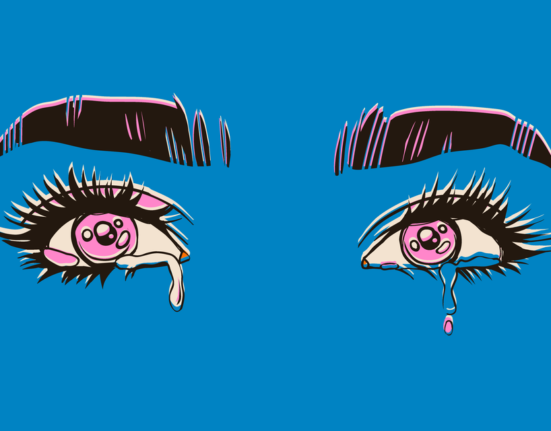Do you are feeling like you’re socially awkward? Shyness in social situations may be damaging to your emotional well-being. Don’t worry, here’s what you possibly can do.
Being socially awkward isn’t only a case of occasionally feeling embarrassed or getting things improper. For many individuals, it might be an actual curse, destroying their ability to maintain healthy social lives or develop meaningful relationships.
Causes of Social Awkwardness
If you’re wondering whether you’re simply born and destined to be socially awkward, you’re not alone. Many grapple with this query, and the reply lies in a posh mix of things.
1. Environmental Influences
If you’ve been raised or steadily end up in environments where social interaction isn’t encouraged or is negatively perceived, it’s natural to feel misplaced in social settings.
This discomfort can stem from not having enough opportunities to practice and refine social skills, leading to a way of being socially awkward. Schools, workplaces, and even homes with limited social interaction can foster these feelings.
2. Family Dynamics
Your family plays a vital role in your social development. If you grew up in a household where open communication wasn’t encouraged, or where social skills weren’t modeled effectively, you would possibly end up struggling in social situations.
In contrast, families that encourage open dialogue and social interaction may help develop more robust social skills.
3. Peer Interactions
Our peers significantly influence our social development, especially during childhood and adolescence.
Positive peer interactions help develop good social skills, while negative experiences like bullying or social exclusion can lead to long-lasting feelings of social awkwardness.
(*49*)4. Biological Factors
Some points of our biological makeup can predispose us to social anxiety or awkwardness.
Studies have shown that certain brain chemistry and hormonal balances can affect how we process social cues and respond to social situations.
5. Genetic Predispositions
Just like we will inherit physical traits, there’s evidence to suggest that social traits may be passed down too.
If social awkwardness is common in your loved ones, there is likely to be a genetic component at play. However, genetics isn’t destiny – it’s only one piece of the puzzle.
6. Neurological Aspects
People with neurological differences may process social cues otherwise, leading to unique social interaction styles. It’s essential to recognize that this isn’t about being socially awkward, but moderately about having a unique social approach.
7. Psychological Factors
Psychological conditions corresponding to social anxiety disorder can contribute significantly to feelings of social awkwardness. When your mind is consistently nervous about being judged or making mistakes in social situations, it might be difficult to interact comfortably.
8. Low Self-Esteem
How you view yourself plays a major role in your social interactions. If you struggle with low self-esteem, you would possibly doubt your ability to engage effectively in social situations, which in turn could make you are feeling more socially awkward.
It’s a cycle where poor self-perception feeds social discomfort, which then reinforces negative self-perception.
9. Fear of Judgment or Rejection
This fear could make you hyper-aware of yourself in social situations, leading to the form of self-consciousness and hesitancy that others might perceive as awkwardness.
It’s a natural feeling, but when magnified, it might be a major barrier to comfortable social interaction.
Screaming Signs of Social Awkwardness
Now, it won’t be that easy to know whether you’re socially awkward or not. You might think you’re only a bit quirky, but there are particular signs that may indicate social awkwardness.
1. Feeling Under the Spotlight
If so, this can be a classic sign of social awkwardness and anxiety, where your common sense has been defeated by an awesome nervousness around other people.
2. Clumsiness
Likewise, all other motor functions respond to your nerves, making the best motion appear to be an intensive test of cognitive control.
3. Poor Understanding of Social Cues
Are you certainly one of those individuals who never knows when to shake a hand or kiss a cheek?
4. Awkward Conversation
When you’re socially awkward, your conversation with others just never flows naturally.
It overlaps and interrupts, or you find yourself leaving huge silences and overly outstanding pauses where it could have been more appropriate to contribute something to say.
5. Inappropriate Conversation
This is one of the crucial burningly embarrassing of all of the misfires attributable to being socially awkward, and it might cause a number of misconceptions in regards to the nature of your character.
Blurting out a sexist comment in front of a gaggle of individuals of the other sex, for instance, relaying crudities in polite company, or failing to enter the spirit of a drunken night out with friends can severely cripple any social situation.
6. The Man on the Moon Syndrome
Do you, quite simply, feel like everyone else is from a unique planet? Like there’s nothing in common between you and the remainder of humanity, which then leads you to seek your personal company increasingly?
Here’s How to Not Be Socially Awkward
Unfortunately, there is no such thing as a one answer to overcoming your awkwardness. But you possibly can implement plenty of steps over time that can eventually curb your nervousness when out in public.
If you’re thinking that you do suffer from this particular curse and need to do something about it, then the next steps may be ways to recover from your social hurdles and begin mingling with the remainder of society.
1. Think Outside Yourself
They’re enthusiastic about their jobs, partners, children, and a thousand other things, but often not you. Once you realize this, you’ll be rather a lot happier interacting with others.
2. Listen
A variety of the rationale why you get conversational and social cues improper is that you simply’re so tense and nervous about making mistakes that you simply don’t listen properly to people.
3. Stop
If you’re getting clumsy, getting things improper, and becoming aware that you simply’re making things a bit awkward, then STOP.
Stop every little thing—thought, movement, speech, etc.—and take a deep breath before starting another time. Even slippery slopes may be climbed.
4. Straighten Up
Despite the indisputable fact that slouching makes you look a bit odd and uncomfortable, it also impedes clear respiration and speech, which is probably going to increase the variety of social mistakes you make.
If you are feeling more confident and upright, it’s easier to act that way, and the 2 will then stimulate one another in a cycle of increased confidence.
5. Smile
This latter point, in turn, will add to your personal comfort levels.
6. Get Started
A straightforward interview technique that works equally well in social situations is to initiate the conversation.
7. Learn to Laugh at Yourself
Don’t beat yourself up for those who trip, stumble, or say something a bit silly. Really, there’s nothing improper with being socially awkward.
As you’re talking to people, make mental notes of things they’re saying. This serves several purposes. Firstly, it should force you to listen to the conversation and get your social cues right.
Secondly, the act of committing things to memory will distract you from your personal nerves, a form of auto-cognitive sleight of hand.
9. Tighten Up
This is a bizarre tip, nevertheless it really does work to recover from feeling social awkward. If you’re sitting down while in a social situation and you’re feeling your nerves start to rise, then clench your buttocks tight and keep them clenched.
For some reason, this easy act seems to chill out the remainder of your body, in addition to distract your mind from the anxiety that it’s starting to take pleasure in.
10. Don’t Dwell
When this happens, you turn out to be much more awkward, so you would like to utilize the “Mindful Stop” technique.
This essentially means mentally shouting out the word “stop” as loudly as you internally can, and use that considering space to refocus on real life.
11. Seek Feedback from Trusted Friends or Family
Sometimes, getting an outdoor perspective may be invaluable. Talk to friends or relations you trust and ask them for honest feedback about your social interactions.
They might provide insights into specific areas you possibly can improve, like possibly you don’t make enough eye contact or tend to interrupt others. Remember, the goal here isn’t to feel criticized but to gain constructive advice.
12. Engage in Active Listening
Being listener is a key a part of being less socially awkward. Active listening involves fully concentrating on what’s being said moderately than simply passively hearing the words.
Show that you simply’re engaged by nodding, making eye contact, and responding appropriately. This not only makes the speaker feel valued but in addition takes the pressure off you to do all of the talking.
13. Join a Club or Group with Similar Interests
Finding a gaggle or club that aligns together with your interests could make social interactions feel more natural and fewer forced. When you’re engaging in an activity you enjoy or discussing a subject you’re obsessed with, conversation can flow more easily.
This setting provides a structured way to interact socially, which may be less intimidating than more open-ended social situations.
14. Work on Your Nonverbal Communication
A big a part of communication is nonverbal, including facial expressions, body language, and gestures. Work on being more aware of your nonverbal cues and the way they is likely to be interpreted by others.
Simple things like maintaining good posture, making appropriate eye contact, and using gestures can significantly improve the way you’re perceived in social settings.
15. Consider Professional Help if Needed
If your social awkwardness feels overwhelming and is significantly impacting your life, it is likely to be helpful to seek skilled help. A therapist, especially one specializing in social skills or anxiety, can provide tailored strategies and support.
They can assist you understand the basis causes of your social challenges and work with you to develop practical skills to overcome them. Remember, in search of help is an indication of strength, not weakness.
16. Educate Yourself on Social Skills
These resources can offer practical advice and exercises to practice. Learning about social dynamics intellectually can sometimes make it easier to apply these skills in real-life situations.
17. Set Small, Achievable Social Goals
Instead of setting out to completely overhaul your social skills overnight, set small, manageable goals. For example, if starting conversations is tough for you, you would possibly set a goal to initiate a small talk with a colleague once a day.
18. Practice Mindfulness and Relaxation Techniques
Anxiety often accompanies social awkwardness, so learning to manage your anxiety may be helpful. Mindfulness and leisure techniques like deep respiration, meditation, or yoga may help calm your mind and reduce stress.
When you’re more relaxed, social interactions can feel less daunting. Plus, mindfulness encourages you to live within the moment, which might assist you be more present and engaged in social situations.
19. Embrace Your Unique Qualities
Remember, you don’t have to fit a certain mold to be accepted socially; often, it’s our quirks that make us memorable and endearing. Learning to be comfortable in your personal skin can reduce the sentiments of awkwardness, as confidence is essential in social interactions.
20. Explore Online Social Platforms
If face-to-face interactions are particularly difficult, start by engaging on online platforms. This generally is a less intimidating way to practice interacting and expressing yourself.
This may help construct your confidence in social interactions, which might then translate into the offline world.
21. Learn from Socially Skilled Individuals
Observe people you think about adept in social situations. How do they begin conversations? What body language do they use? Learning from others can provide useful insights into effective social behaviors.
22. Reflect on Past Interactions
Spend a while reflecting in your past social interactions, each the successful ones and the awkward ones. Analyze what went well and what might have been higher.
This reflection isn’t about being hard on yourself but about learning and growing. Understanding your social strengths and weaknesses can assist you deal with what areas to improve.
23. Don’t Overthink Post-Interaction
Remind yourself that others are likely not analyzing your behavior to the degree you’re. Most individuals are more focused on their very own social behavior than on scrutinizing yours.
Engaging in volunteer work or community activities can provide a structured environment for social interaction.
The Impact of Social Awkwardness
Why should we learn to not be socially awkward, you ask? Well, social awkwardness isn’t nearly feeling a bit misplaced at parties or struggling to start conversations. It can have far-reaching effects on various points of life, a few of which could surprise you.
1. Effects on Personal Relationships
When you’re socially awkward, you would possibly find it difficult to initiate or maintain conversations, leading to misunderstandings or a way of distance with friends and family members.
If you’re consistently nervous about the way you’re perceived, you would possibly hold back in sharing your true self, making it hard to form real, close relationships. This can lead to a way of loneliness and isolation, even whenever you’re surrounded by people.
2. Impact on Professional Life
It’s not only in regards to the social aspect but in addition about how these interactions can affect your profession growth.
If you’re seen as unapproachable or unable to work well in a team, it would limit your opportunities for promotions or special projects. Remember, your technical skills get you the job, but your social skills often assist you grow in it.
3. Mental Health Implications
Consistently feeling socially awkward can take a toll in your mental health. It can lead to increased feelings of hysteria, particularly social anxiety, and might even contribute to depression.
The constant worry about the way you’re perceived in social situations may be mentally exhausting, leaving you feeling drained and unhappy.
4. Lowered Self-Esteem and Confidence
Regularly feeling misplaced or uncomfortable in social situations can lead to a decrease in self-esteem and confidence.
If you begin believing that you simply’re inherently socially inept, it might turn out to be a self-fulfilling prophecy, where you’re less likely to put yourself in social situations, thus reducing your possibilities to improve your social skills.
5. Difficulty in Conflict Resolution
If you’re socially awkward, you would possibly find it hard to navigate conflicts, whether in personal relationships or at work. The ability to express your thoughts and feelings effectively is crucial in resolving disagreements.
Without these skills, misunderstandings can escalate, leading to strained relationships and unresolved issues. It’s not nearly having the ability to argue your point; it’s also about understanding and acknowledging others’ perspectives.
6. Challenges in Expressing Emotions
You might struggle to find the correct words to express how you are feeling or misread others’ emotional cues, leading to miscommunications.
This may be particularly difficult in close relationships, where emotional exchange is essential. When your emotions are misinterpreted or not communicated effectively, it might lead to feelings of frustration and isolation.
7. Impacts on Education
This can lead to underperformance academically, not due to a lack of know-how of the fabric, but due to the anxiety and stress of social interactions.
8. Social Isolation
One of probably the most direct effects of being socially awkward is the tendency to withdraw and isolate oneself. If social situations make you uncomfortable, you would possibly start avoiding them altogether.
9. Difficulty in Networking and Building Connections
In today’s world, networking is essential for profession advancement and private growth. If you’re socially awkward, you would possibly find it hard to reach out to latest people, attend networking events, and even make small talk.
These limitations can prevent you from meeting potential mentors, friends, or collaborators, hindering your personal and skilled development.
10. Increased Stress in Social Situations
Simple activities like attending a celebration, occurring a date, and even participating in a piece meeting can provoke anxiety. This constant stress can affect your overall quality of life, making you are feeling such as you’re all the time on edge.
Leave That Wallflower Mentality at Home!
Now that you simply’re armed with just a little knowledge and the tools to combat feeling socially awkward, it’s time to start living your life the way it’s meant to be lived, and leave that wallflower mentality at home!
Trying to stop being socially awkward isn’t easy, but for those who’re determined and self-motivated, then you definitely’ll pull through. Don’t quit and remember, you’re going to have some bumps along the best way…but keep going. Each challenge is a chance to learn and grow.





















